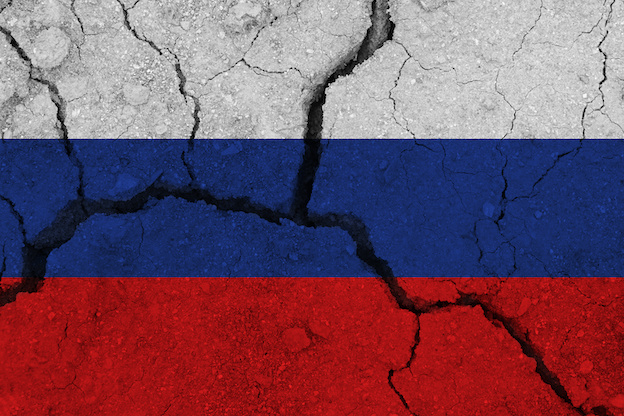
Companies face pressure to reduce bank balances at Raiffeisen Bank, higher bank processing fees and new sanctions.
The dramatic showdown that unfolded in Russia over the weekend threatened to further complicate the challenges facing multinationals still operating in the war-torn region amid sanctions and countersanctions. Some are members of the NeuGroup for Russia-Ukraine Crisis working group, including companies that transport food commodities and medical supplies. One member trying to get ahead of the potential fallout from the apparent mutiny requested a session which took place Monday.
- Members who participated in the discussion have not yet noticed any change in business conditions because of the recent events. But they addressed several new and ongoing concerns.
- For example, one food company believes new plantings and grain in warehouses have declined and expects the “grain corridor” to be shut soon. The member said the outlook calls for a worsening of the global food situation in Russia and Ukraine, both important suppliers. Also, there are rumors of a new tariff on fertilizers which could exacerbate the problem.
- What follows are takeaways from the session distilled by Paul Dalle Molle, NeuGroup senior executive advisor, who leads the working group and moderated the group’s 26th gathering.
Lower bank balances. With the withdrawal of most Western banks, and in particular Citibank, multinationals have been relying on two remaining institutions, Raiffeisen Bank and Unicredit. For some time, Raiffeisen has required clients to lower month-end cash balances; now the bank is asking for daily balances to be kept very low.
- Members have been complying by moving funds held at Raiffeisen to other bank accounts at small, unsanctioned Russian banks or international banks headquartered outside the EU and US and still active in Russia.
- This process is familiar to members who faced the same requirements from Citi as it wound down operations in Russia.
Brokerage accounts? To keep balances low, banks have suggested companies open brokerage accounts so excess cash they hold at the bank can be swept nightly from the operating account on the bank’s balance sheet to the brokerage account managed by the bank.
- This is a well-known and typical procedure throughout the world, only now being applied to Russia because banks are under so much pressure to reduce their Russian reserves.
- However, even if members are OK in principle with this procedure, none present have opened the accounts because the required documentation was daunting—they decided the benefits were not worth the time and expense.
Declined payments. Members reported recent changes in how Raiffeisen is processing payments, declining those less than EUR 50,000, and rejecting some larger payments for unclear reasons. So far, it appears Unicredit is processing all payments normally.
Few exit ramps. Members report that, as usual, the only money exiting Russia is for intercompany trade invoice settlements verified through the normal bureaucratic process; there are no dividends nor capital repatriations.
- There are rumors that Russia will impose a 10% or even a 50% tax on these types of payments, but so far members say all payments are coming through correctly. Processing fees from banks, however, have increased.
- Members are still unable to repatriate funds from Ukraine.
Sanctions. Some recent new Western sanctions have forced companies to update their list of approved counterparties again and to interrupt or change previous sales already in process.
- One member reports that new sanctions on raw material imports by their Russian affiliate will delay or diminish their production of goods that are otherwise compliant with sanctions.
- Another noted that Russia has passed a new law allowing it to seize Western assets. Earlier this month, the Financial Times reported the Kremlin secretly ordered legislation to enable Western assets to be appropriated at reduced prices and is discussing even more draconian measures to fully nationalize companies, citing people familiar with the deliberations.
Russian share shortfall. Mr. Dalle Molle cited a report by Reuters this week that Deutsche Bank had uncovered a shortfall in the Russian shares that back depositary receipts the bank had issued before the Ukraine invasion.
- The report says Deutsche Bank attributed the shortfall to a decision by Moscow to allow investors to convert some of the DRs into local stock.
- This may not affect corporates operating in Russia directly but underscores global investors’ challenges in recovering trapped investments in the country’s companies.


